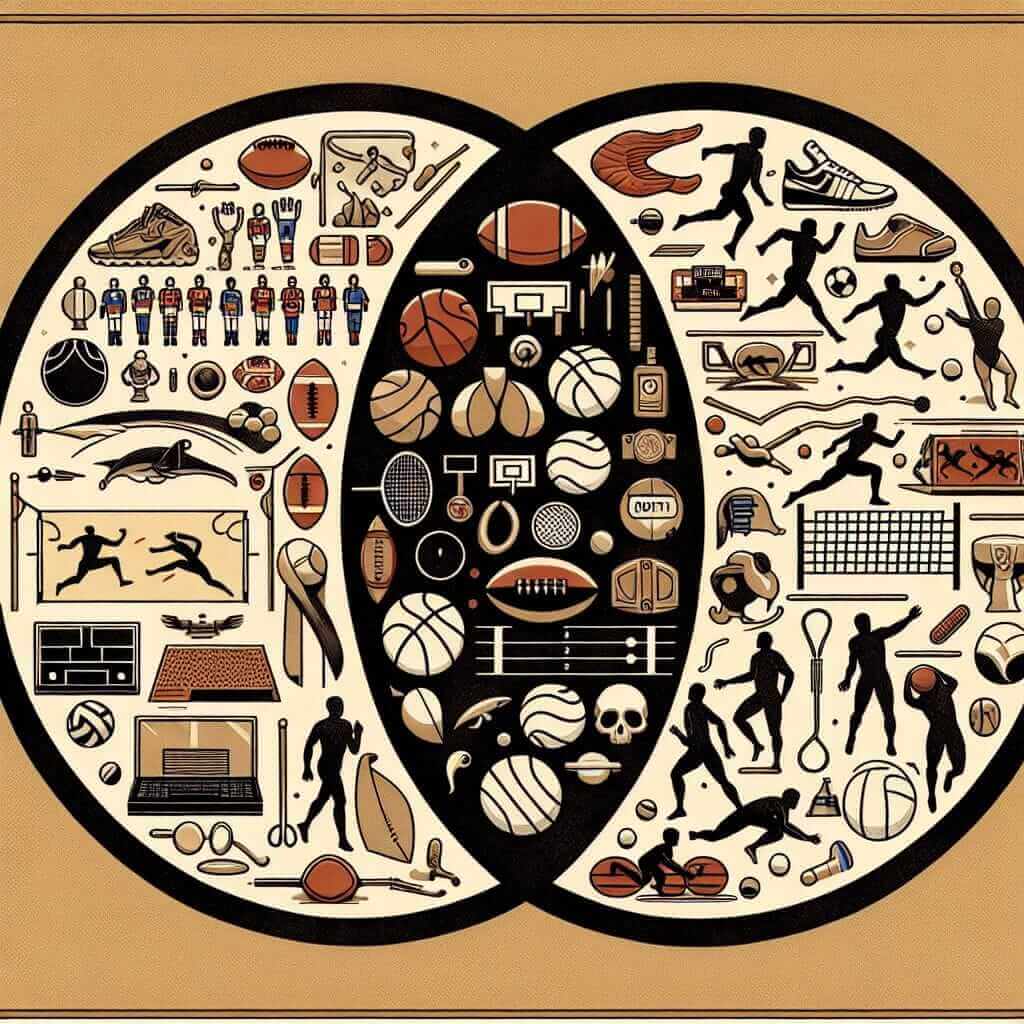As an experienced IELTS instructor, I often encounter students who are confused about the subtle differences between seemingly similar words, and “athletics” and “sports” are frequent culprits. Understanding these nuances is crucial for achieving a high band score in your IELTS exam, particularly in the Writing and Speaking sections where precise language is key.
Unpacking the Terms: “Athletics” and “Sports”
While often used interchangeably, “athletics” and “sports” have distinct meanings.
Sports: A Broad Umbrella
“Sports” encompass a wide range of physical activities that involve competition, physical exertion, skill, and rules. Think of “sports” as the overall category.
Examples of sports:
- Football
- Badminton
- Swimming
- Cricket
- Table Tennis
Athletics: A Specific Focus
“Athletics” refers to a specific group of sports that involve competitive running, jumping, throwing, and walking. It is a sub-category within the broader term “sports.”
Examples of athletics:
- Track and field events (e.g., 100-meter sprint, long jump, javelin throw)
- Road running (e.g., marathons, half-marathons)
- Racewalking

Why the Distinction Matters for IELTS
Using “athletics” and “sports” correctly demonstrates a strong grasp of English vocabulary and nuance, which is crucial for achieving a higher band score in the IELTS.
Consider these examples:
Incorrect: “I have been an avid sports enthusiast since childhood, particularly enjoying athletics such as football and cricket.”
Correct: “I have been an avid sports enthusiast since childhood, particularly enjoying athletics such as sprinting and long jump, as well as other sports like football and cricket.”
In the first sentence, the use of “athletics” to describe football and cricket is incorrect. The second sentence accurately distinguishes between the broader category of “sports” and the specific subset of “athletics.”
Applying the Knowledge: IELTS Writing and Speaking
Imagine you need to write an essay about the importance of physical activity. You could say:
“Regular participation in sports and athletics provides numerous physical and mental health benefits.”
This sentence correctly uses both terms in a relevant context.
In the IELTS Speaking test, you might be asked about your hobbies. You could respond with:
“I’m a very active person. I enjoy various sports, but my true passion lies in athletics. I’m training for a marathon, and I find the discipline and dedication required very rewarding.”
This response demonstrates your understanding of the distinction between “sports” and “athletics” while showcasing your vocabulary range.
Key Takeaways
- Sports is a broad term encompassing various physical activities with competition and rules.
- Athletics refers to a specific category of sports involving running, jumping, throwing, and walking.
- Using these terms accurately enhances your vocabulary score in the IELTS Writing and Speaking sections.
By understanding these subtle differences, you can confidently showcase your language proficiency and achieve your desired IELTS band score!